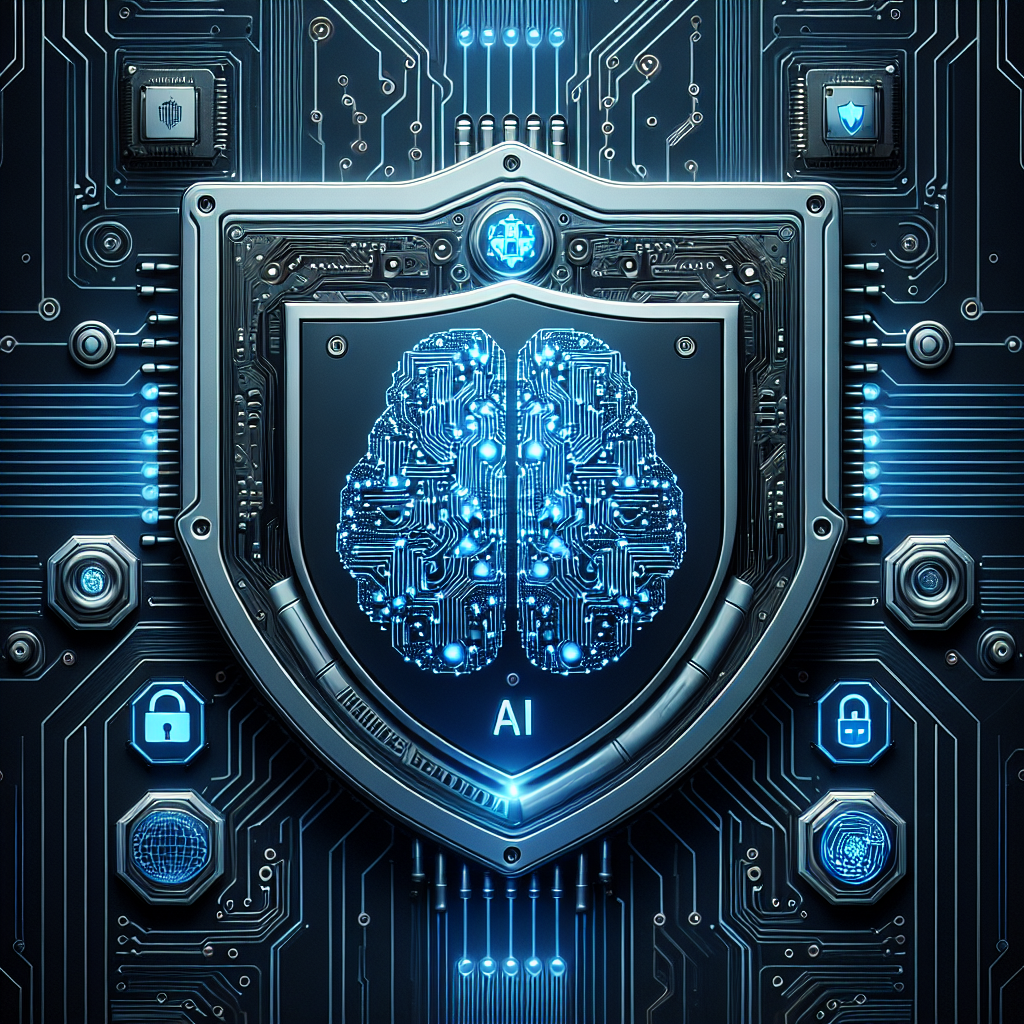In today’s digital age, cybersecurity has become a critical concern for individuals, businesses, and governments alike. With the increasing number of cyber threats and attacks, traditional security measures are no longer sufficient to protect sensitive data and information. This is where artificial intelligence (AI) steps in to redefine cybersecurity defense.
AI is revolutionizing the way cybersecurity is approached by providing advanced capabilities to detect, analyze, and respond to threats in real-time. By leveraging AI technologies such as machine learning, deep learning, and natural language processing, organizations can enhance their cybersecurity defense mechanisms to stay ahead of cybercriminals.
The Role of Artificial Intelligence in Redefining Cybersecurity Defense
1. Threat Detection: One of the key roles of AI in cybersecurity defense is threat detection. AI-powered systems can analyze vast amounts of data in real-time to identify potential security threats and anomalies. By using machine learning algorithms, AI can detect patterns and trends in data that may indicate a cyber attack. This proactive approach allows organizations to respond to threats before they escalate into a full-blown cyber incident.
2. Behavioral Analysis: AI can also be used to analyze user behavior and detect unusual activities that may indicate a security breach. By monitoring user interactions with networks and systems, AI can identify deviations from normal behavior and alert security teams to potential threats. This behavioral analysis helps organizations to identify insider threats, phishing attacks, and other malicious activities that may compromise their cybersecurity defenses.
3. Vulnerability Management: AI can assist organizations in identifying and prioritizing vulnerabilities in their systems and networks. By scanning for vulnerabilities and analyzing potential risks, AI can help organizations to patch critical security gaps before they are exploited by cybercriminals. This proactive approach to vulnerability management can help organizations to strengthen their cybersecurity defenses and reduce the risk of a successful cyber attack.
4. Incident Response: In the event of a cyber attack, AI can play a crucial role in incident response. AI-powered systems can analyze the impact of an attack, identify compromised systems, and recommend remediation actions to contain the threat. By automating incident response processes, AI can help organizations to minimize the impact of a cyber attack and recover swiftly from a security breach.
5. Threat Intelligence: AI can also be used to gather and analyze threat intelligence from various sources to stay ahead of cyber threats. By monitoring the dark web, hacker forums, and other sources of threat intelligence, AI can provide organizations with real-time insights into emerging cyber threats and trends. This threat intelligence can help organizations to proactively defend against cyber attacks and adapt their cybersecurity defenses to evolving threats.
6. Adaptive Security: AI enables organizations to build adaptive security systems that can learn and evolve over time. By continuously analyzing data and adapting to new threats, AI-powered security systems can improve their effectiveness and resilience against cyber attacks. This adaptive approach to cybersecurity defense allows organizations to stay one step ahead of cybercriminals and protect their sensitive data and information.
Frequently Asked Questions (FAQs)
1. How does AI improve cybersecurity defense?
AI improves cybersecurity defense by providing advanced capabilities for threat detection, behavioral analysis, vulnerability management, incident response, and threat intelligence. By leveraging AI technologies such as machine learning and deep learning, organizations can enhance their cybersecurity defenses to detect and respond to threats in real-time.
2. Can AI replace human cybersecurity professionals?
While AI can automate many cybersecurity tasks and processes, it cannot replace human cybersecurity professionals entirely. Human expertise is still essential for strategic decision-making, threat analysis, and incident response. AI can augment human capabilities and help cybersecurity professionals to be more efficient and effective in defending against cyber threats.
3. Is AI immune to cyber attacks?
No technology is immune to cyber attacks, including AI. AI-powered systems can also be vulnerable to security breaches if not properly secured. Organizations must implement robust security measures to protect their AI systems from cyber attacks and ensure the integrity and confidentiality of their data.
4. How can organizations implement AI in their cybersecurity defenses?
Organizations can implement AI in their cybersecurity defenses by investing in AI technologies, training their cybersecurity teams on AI capabilities, and integrating AI-powered security solutions into their existing systems and networks. By partnering with AI vendors and service providers, organizations can leverage AI to enhance their cybersecurity defenses and protect their critical assets.
5. What are the challenges of using AI in cybersecurity defense?
Some of the challenges of using AI in cybersecurity defense include the complexity of AI technologies, the need for data quality and quantity, the risk of false positives and false negatives, and the potential for AI bias and discrimination. Organizations must address these challenges to effectively leverage AI in their cybersecurity defenses and maximize the benefits of AI technologies.
In conclusion, AI is playing a transformative role in redefining cybersecurity defense by providing advanced capabilities for threat detection, behavioral analysis, vulnerability management, incident response, and threat intelligence. By leveraging AI technologies, organizations can enhance their cybersecurity defenses to stay ahead of cyber threats and protect their sensitive data and information. As cyber threats continue to evolve, AI will play an increasingly important role in strengthening cybersecurity defenses and safeguarding organizations against cyber attacks.

